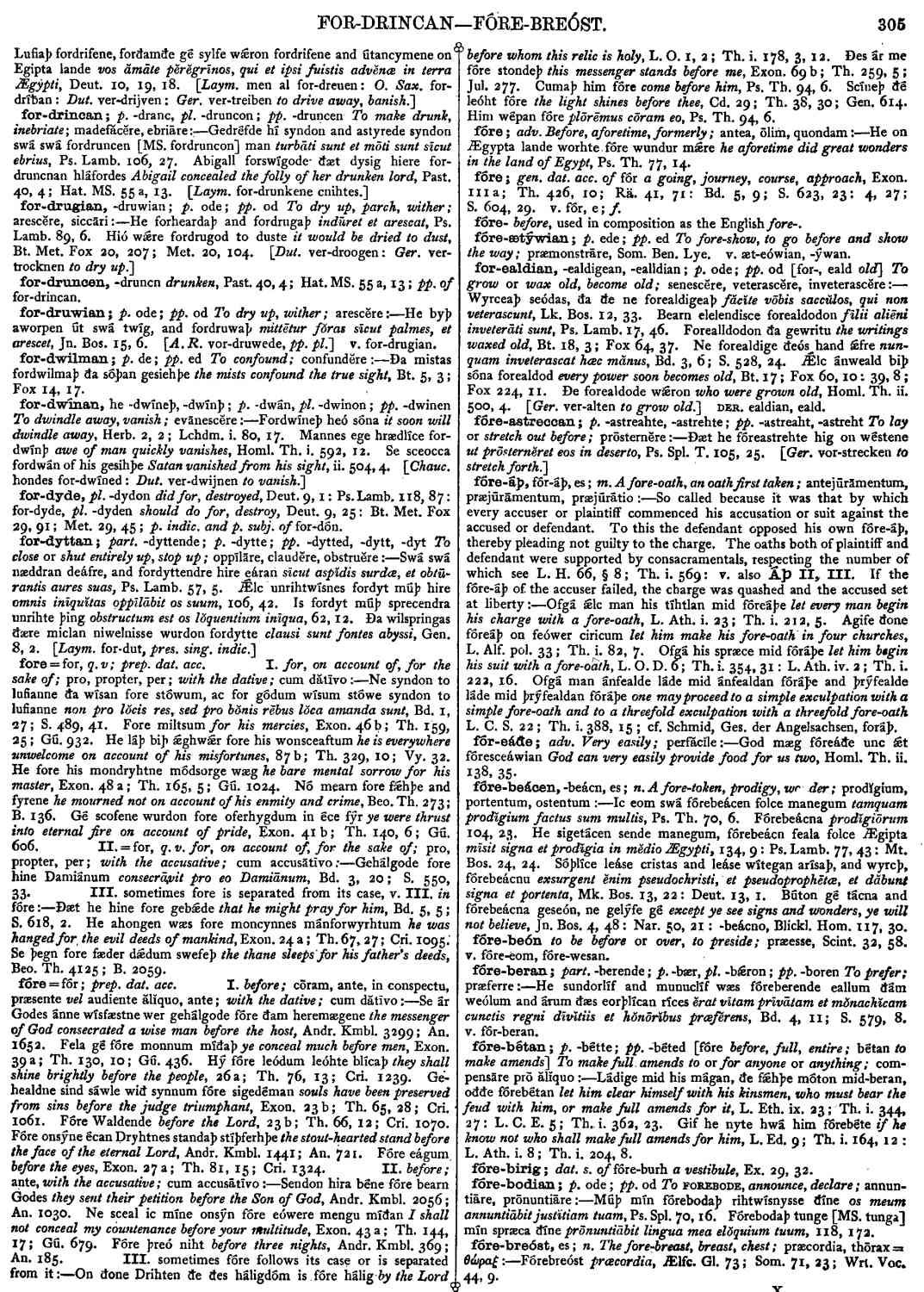fore
- preposition
-
Ne syndon to lufianne ða wísan fore stówum, ac for gódum wísum stówe syndon to lufianne
non pro lŏcis res, sed pro bŏnis rēbus lŏca amanda sunt,
- Bd. 1, 27 ;
- 8. 489, 41.
-
Fore miltsum
for his mercies.
- Exon. 46 b ;
- Th. 159, 25 ;
- Gú. 932.
-
He láþ biþ ǽghwǽr fore his wonsceaftum
he is everywhere unwelcome on account of his misfortunes,
- 87 b ;
- Th. 329, 10 ;
- Vy. 32.
-
He fore his mondryhtne módsorge wæg
he bare mental sorrow for his master,
- Exon. 48 a ;
- Th. 165, 5 ;
- Gú. 1024.
-
Nó mearn fore fǽhþe and fyrene
he mourned not on account of his enmity and crime,
- Beo. Th. 273 ;
- B. 136.
-
Gé scofene wurdon fore oferhygdum in éce fýr
ye were thrust into eternal fire on account of pride,
- Exon. 41 b ;
- Th. 140, 6 ;
- Gú. 606.
-
Gehálgode fore hine Damiánum
consecrāvit pro eo Damiānum,
- Bd. 3, 20 ;
- S. 550, 33.
-
Ðæt he hine fore gebǽde
that he might pray for him,
- Bd. 5, 5 ;
- S. 618, 2.
-
He ahongen wæs fore moncynnes mánforwyrhtum
he was hanged for the evil deeds of mankind,
- Exon. 24 a ;
- Th. 67, 27 ;
- Cri. 1095.
-
Se þegn fore fæder dǽdum swefeþ
the thane sleeps for his father's deeds,
- Beo. Th. 4125 ;
- B. 2059.
Bosworth, Joseph. “fore.” In An Anglo-Saxon Dictionary Online, edited by Thomas Northcote Toller, Christ Sean, and Ondřej Tichy. Prague: Faculty of Arts, Charles University, 2014. https://bosworthtoller.com/11287.
Checked: 1